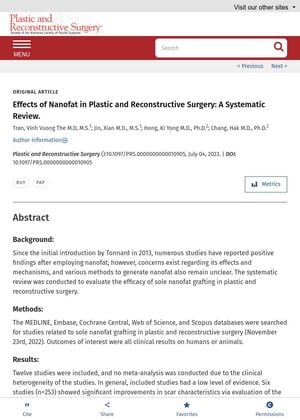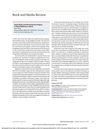Effects of Nanofat in Plastic and Reconstructive Surgery: A Systematic Review
July 2023
in “
Plastic and reconstructive surgery/PSEF CD journals
”

TLDR Nanofat grafting improves scars, rejuvenates skin, and may help hair growth safely, but more research is needed.
The systematic review "Effects of Nanofat in Plastic and Reconstructive Surgery" evaluated the efficacy of nanofat grafting in plastic and reconstructive surgery. The review included 12 studies, with a total of 253 participants in six of these studies. The results showed significant improvements in scar characteristics, skin rejuvenation (wrinkles, fine rhytides, pigmentation, or discoloration), and increases in skin thickness, collagen, and elastic fibers. Three experimental studies also showed beneficial effects of nanofat on fat grafting, diabetic wound healing, and hair growth. No severe complications were reported. The review concluded that nanofat grafting shows potential benefits in scar treatment and anti-aging, and suggested that further clinical studies on fat grafting, wound healing, and hair growth should be conducted.
